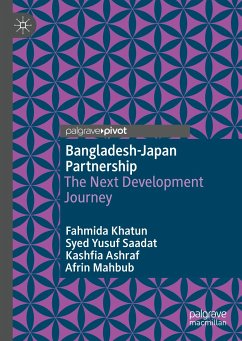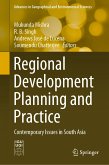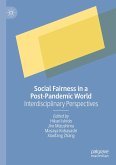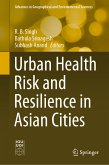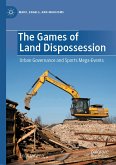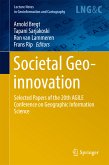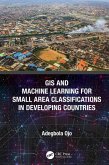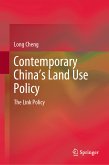This book analyses the trade relationship between Bangladesh and Japan, including foreign investments and foreign aid by Japan to Bangladesh. It emphasises how Japan may support Bangladesh in its next development journey during the fourth industrial revolution (4IR) and after Bangladesh's Least Developed Country (LDC) graduation. This is the first book to present a comprehensive evaluation of Bangladesh's economic relationship with Japan, including how it has evolved over the preceding fifty years and its possibilities and implications for the future.
This new study will inform policy discourse, influence relevant policies, and inspire future research on these key issues.
Syed Yusuf Saadat is a Research Fellow at the Centre for Policy Dialogue (CPD) in Bangladesh.
The book draws attention to the importance of increased economic diversification for Bangladesh in terms of skill and productivity with the increasing need to accelerate technological adoption from Japan to be on par with international competition following Bangladesh's LDC graduation. It presents a thorough examination of Bangladesh's prospects to access the Japanese market, as well as Japan's assistance in the development of human capital and infrastructure in Bangladesh. It also discusses how Bangladesh might both attract additional foreign direct investment (FDI) from Japan and improve its technical skills by utilising expertise obtained through Japanese investments.
This new study will inform policy discourse, influence relevant policies, and inspire future research on these key issues.
Fahmida Khatun is the Executive Director at the Centre for Policy Dialogue (CPD) in Bangladesh.
Syed Yusuf Saadat is a Research Fellow at the Centre for Policy Dialogue (CPD) in Bangladesh.
Kashfia Ashraf is currently pursuing her master's degree in economics from Lakehead University in Canada.
Afrin Mahbub is a Programme Associate at the Centre for Policy Dialogue (CPD) in Bangladesh
Dieser Download kann aus rechtlichen Gründen nur mit Rechnungsadresse in A, B, BG, CY, CZ, D, DK, EW, E, FIN, F, GR, HR, H, IRL, I, LT, L, LR, M, NL, PL, P, R, S, SLO, SK ausgeliefert werden.
Es gelten unsere Allgemeinen Geschäftsbedingungen: www.buecher.de/agb
Impressum
www.buecher.de ist ein Internetauftritt der buecher.de internetstores GmbH
Geschäftsführung: Monica Sawhney | Roland Kölbl | Günter Hilger
Sitz der Gesellschaft: Batheyer Straße 115 - 117, 58099 Hagen
Postanschrift: Bürgermeister-Wegele-Str. 12, 86167 Augsburg
Amtsgericht Hagen HRB 13257
Steuernummer: 321/5800/1497
USt-IdNr: DE450055826
Bitte wählen Sie Ihr Anliegen aus.
Rechnungen
Retourenschein anfordern
Bestellstatus
Storno

